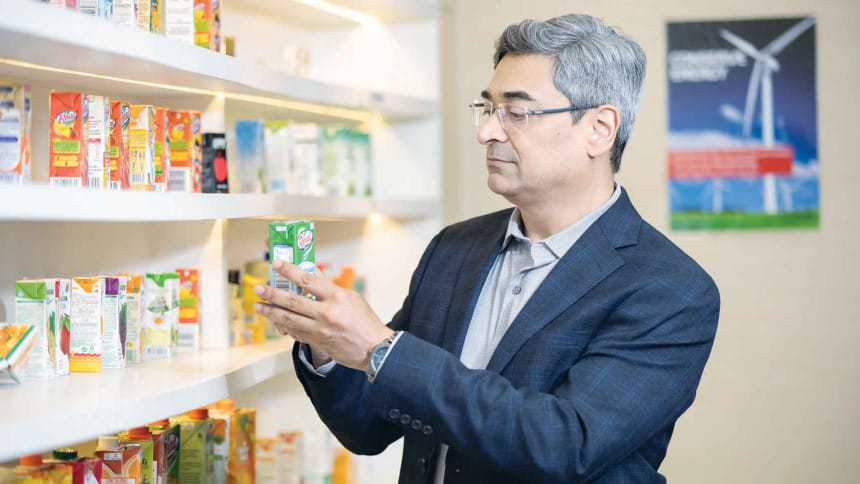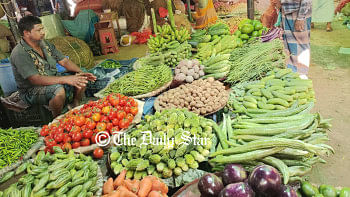Balancing Food Safety and Sustainability

Today's consumers are extremely well-informed; they not only want safe food from manufacturing companies and brands, but also do not want this access at the cost of the planet. For some organisations, sustainability is not a new phenomenon but something that is embedded in their DNA, even as they step up efforts to ensure that they run a responsible business, that not only cares for people but also the planet. One such organisation is Tetra Pak, the world leading processing and packaging company that has long been known for their commitment to sustainability. We spoke to Jaideep Gokhale, Vice President, Sustainability for the Asia Pacific at Tetra Pak to learn more of their efforts.
Can you please describe for us how Tetra Pak's technology is an ideal example of balancing food safety and sustainability?
The primary role of a Tetra Pak carton is to deliver safe food to everyone, everywhere. The magic is in the aseptic processing and packaging technology which first helps make the food safe through a unique UHT (Ultra High Temperature) treatment and then keeps the food safe till the package is opened thanks to a special 6-layer aseptic packaging. This combination ensures that food inside our cartons can remain safe, retain its nutrients and can be stored up to six months without the need for any preservatives or refrigeration.
While on one hand the carton keeps the food safe, on the other hand, it does this with the lowest carbon footprint compared to any alternative packaging used for similar products. More than 70 percent of the carton is made of paperboard, a renewable material, sourced only from responsibly managed forests. The carton is recyclable and can be recycled into various materials like paper and panel-boards (to replace wood). So, when you choose a Tetra Pak carton, you are not only choosing a package that is good for you, but one that is also good for the planet.
We can see that India has advanced significantly in recycling of Tetra Pak cartons. What have been the success factors that Bangladesh can adopt?
In India, we have been fairly successful but we still have a long way to go. The biggest contributing factor in our progress has been our 'value-chain approach.' Every stakeholder is involved in the successful and efficient waste management system. It's not the sole duty of the manufacturers only, the consumers to the government and municipal bodies are proactively involved to make the system successful.
Here, we have also invested more than 17 years in building an ecosystem with the support of all these stakeholders, working tirelessly to keep strengthening it year after year.
We believe a similar initiative in Bangladesh, a slow but effective method, can definitely help bring similar results in keeping the country clean and help recover wastes in a way that can be recycled into valuable materials that is useful for the society.
Other than the end of life of a carton, what is Tetra Pak's focus when talking about environmental sustainability?
At Tetra Pak, we are working to support the sustainable future of our planet and the long-term success of our customers, as well as the success of our own business. These ambitions are embedded in two of our Strategy 2030 goals: to lead with low-carbon solutions for a circular economy, and to enhance sustainability across the value chain, from sourcing to production to the end of life of our products. This includes minimising emissions and waste, protecting biodiversity and ecosystems, maintaining fresh water availability, and promoting recycling and circularity.
How has COVID-19 impacted your view of the need for balance between food safety and sustainability?
The COVID-19 pandemic has disrupted the status quo, accelerated trends, and created a new landscape of consumer needs and opportunities for companies to build on. In particular, the industry needs to address the growing dilemma around food safety and the environment, stepping up towards the twin goals of meeting the human need for food while protecting our planet's ecosystem. This is where food packaging can play a strong role in bringing about harmony.
Working closely with our customers and stakeholders, we are already on a journey to create the ultimate sustainable food package — a carton package that is made solely from responsibly sourced renewable or recycled materials, is fully recyclable and carbon-neutral, allowing ambient distribution and meeting food safety requirements. We see this as a critical step in building a sustainable future for the next generation, especially in the aftermath of COVID-19.
Are you also seeing a shift in consumer consciousness towards this issue?
Yes, absolutely. A study released by Tetra Pak in late 2020 shows a 10 percent increase in global concern about food safety and future food supplies. Additionally, more than 50 percent of consumers not only believe that improving food safety is a major responsibility of the manufacturers; they also see it as their 'number one' priority to keep them satisfied.
When asked what the major point of concerns were amongst the consumers besides ensuring food safety, they expressed concerns regarding environmental impacts, innovations regarding a more 'sustainable packaging approach' for a better today and tomorrow.
Interviewed by MMC

 For all latest news, follow The Daily Star's Google News channel.
For all latest news, follow The Daily Star's Google News channel. 



Comments